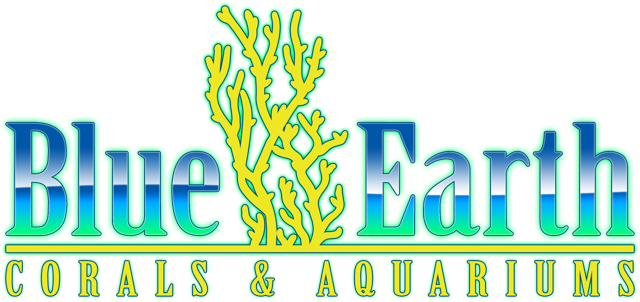Greetings to our West Palm Beach aquarium enthusiasts! Are you trying to treat an Ich outbreak in your reef tank? Fear not! Blue Earth Aquariums, your local aquarium experts, are here to guide you through these trying times. We’ll not only explore the intricate life cycle of Marine Ich but also provide tailored solutions for your fishy friends.
What to look for.
According to the article by Roy P. E. Yanong entitaled “CRYPTOCARYON IRRITANS INFECTIONS (MARINE WHITE SPOT DISEASE) IN FISH”
Fish infected with Cryptocaryon (Ich) can exhibit various symptoms, including the appearance of small white spots, nodules, or patches on their fins, skin, or gills. These signs are not always evident, especially in pale-colored fish or when the infection is confined to the gills. Therefore, the absence of such spots or nodules does not necessarily indicate that Cryptocaryon is not present. It’s important to check the gills for a more accurate diagnosis.
Other physical symptoms may include ragged fins, cloudy eyes, pale gills, increased mucus production, skin color changes, and a thin appearance. Behavioral changes are also common, such as scratching (flashing), abnormal swimming, staying near the surface or bottom of the tank, lethargy, and rapid breathing, suggesting distress.
The severity and speed of the outbreak within a fish population can vary greatly. Factors influencing this include the strain of the parasite, the fish species, their previous exposure to the parasite, and the water temperature. Mortalities can escalate quickly over several days under certain conditions.

Figure 1. Moderate Cryptocaryon irritans infection. Note small white pinpoint masses (“white spots”).
Credit: E. J. Noga
Understanding Marine Ich: Marine Ich in reef tanks, caused by the external parasite Cryptocaryon irritants, poses a significant threat to the flourishing aquatic life in West Palm Beach. Recognizing symptoms like rapid breathing, white cysts, and unusual behavior is crucial. Let’s delve into the four stages of the Marine Ich life cycle and understand how it preys on our beloved fish.
1. Infection Stage: Theronts, in their free-swimming stage, search for a host—a crucial stage for effective treatment within 48 hours.
2. Feeding Stage: The Theront becomes a Trophont, burrows into the fish, and feeds. Infection becomes evident as little white salt-sized dots on the fish’s skin.
3. Drop-Off Stage: After 3-9 days of feeding, the Trophont releases from the fish as a Protomont and moves to the substrate for reproduction.
4. Reproduction Stage: The Protomont becomes a Tomont, reproduces, and forms Tomites. The parasite can live on the substrate for 3 to 72 days, restarting the life cycle once released into the water.
Treatmant Stratagies:
Quarantine – The First Line of Defense: Quarantine becomes crucial in you tank when introducing new fish. It allows observation for potential diseases like White spot and provides an opportunity for rest and acclimatization.
- Copper: An effective parasite treatment in saltwater, but caution is needed as it can harm invertebrates.
- UV Sterilization: Effective on free-swimming Ich parasites, but not on those already in fish skin.
- Hyposalinity: A strategy for fish-only and quarantine tanks, making it difficult for parasites to survive.
- Garlic: An immunostimulant that aids fish in fighting off parasitic infections.
Reef-Safe Treatments: In established aquariums, finding White spots on a fish requires a safe treatment approach. Follow product directions, remove carbon, turn off UVs, feed foods with Garlic, and closely observe fish for signs of improvement.
Taking Action – A Collective Effort: If facing an Ich outbreak, consider moving all fish to a mature quarantine tank without invertebrates, treating with copper. Run the reef tank fish-free for as long as possible while treating in the quarantine tank.
- Prevention: Isolate and observe new fish, provide nutritious foods, and understand the unique challenges in our area.
- Treatment Options: Medications, hypo salinity, UV Sterilizers, increased water temperature, and the most effective—quarantine and copper-based medications.
- Corals and Invertebrates: Not susceptible but sensitive to medications; prevention is key.
We are here to help!
If you’re in West Palm Beach area and are tying to treat Ich in your reef tank, turn to Blue Earth Aquariums for expert assistance. Our team specializes in tackling Ich problems with precision and care. We understand the unique challenges of our local aquariums and provide proper service to ensure the health of your saltwater aquarium.
In Conclution
Marine Ich is a formidable opponent, but armed with knowledge and the right strategies, you can protect your aquarium. Blue Earth Aquariums, servicing West Palm Beach community, is here to guide you through the process. Remember, prevention is key, and if you find yourself in a pinch, our team is ready to assist. Please call 561-722-2597or email us at Shane@blueearthaquariums.com to set up a service appointment!
